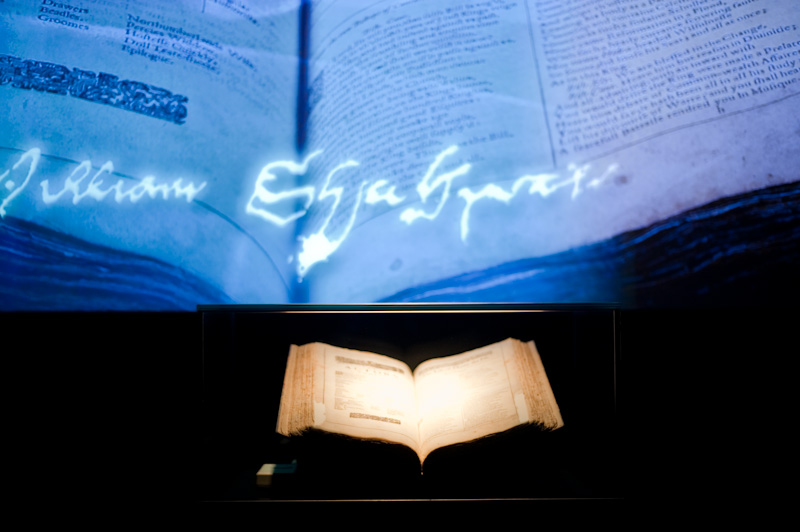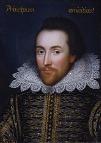Image: The authorship question arises again! Image by Amy Murrell
By Aliss Langridge
What do Sigmund Freud, Charlie Chaplin and Derek Jacobi have in common? They have all questioned Shakespeare’s authorship of his works. Although most people reject this idea, the question of whether Shakespeare was really the author of his own plays and poems has been an ongoing academic debate since 1848. These theories even have a name – the ‘Shakespeare authorship question’. So it’s serious then!
Did Shakespeare really exist? Or was the name ‘Shakespeare’ a pseudonym for the ‘true’ author, or even authors who, for some reason, did not want or could not accept public credit? A popular argument is that, because of the ‘stigma of print’, an aristocrat would become socially disgraced if he was involved in such ‘common’ endeavours as writing for the public.
Now the ‘Shakespeare authorship question’ will entertain a mass audience in the form of a star-studded Hollywood blockbuster directed by Roland Emmerich. Anonymous stars Rhys Ifans as Edward de Vere, Seventeenth Earl of Oxford and the supposed ‘real’ author of Shakespeare’s works. As if this wasn’t controversial enough, the film depicts Edward as also having an incestuous love affair with Queen Elizabeth I, played here by Vanessa Redgrave. What kind of impact will this historical political thriller have on modern viewers? Well, it will certainly get people talking with its uncompromising tagline: Was Shakespeare a fraud? and
rip-roaring special effects.
This ‘thriller’ is sure to be discussed on television and radio chat shows around its release date of October 28. Jacobi, who plays the Narrator in the film, has been quoted as saying: ‘I’m on the side of those who do not believe that the man from Stratford-upon-Avon wrote
the plays.
Anonymous puts the authorship question firmly and squarely on the big screen. It’s a very risky thing to do, and obviously the orthodox Stratfordians are going to be apoplectic with rage.’ So what is the conspiracy? Edward de Vere is the most popular candidate out of four main contenders for the alternative authorship role. (The other 77 aren’t taken as seriously.) Oxfordians are in favour of Edward over Francis Bacon, William Stanley, sixth Earl of Derby, and Christopher Marlowe. A central argument which the ‘anti-Stratfordians’ tend to use is that Shakespeare lacked the education, aristocracy and in-depth knowledge of the Royal Court and politics which they believe was needed to write his plays. Simply put, they believe that Shakespeare’s humble origins were unlikely to have produced the genius behind his writing. Surely, they say, only a member of the higher classes would be equipped enough to write at this level?
Batting for the Bard, naturally, is The Shakespeare Birthplace Trust. Founded in 1847 as an independent educational charity, the organisation emerged as a result of public concern for the future of Shakespeare’s birthplace. It naturally disputes any questions about authorship.
Professor Stanley Wells CBE, Honorary President of the Shakespeare Birthplace Trust, states his argument for Shakespeare writing Shakespeare: ‘A mass of evidence from Shakespeare’s own time shows that a man called William Shakespeare wrote the plays and poems of William Shakespeare. Title pages of early editions of many of his plays and poems name him as their author.’ Furthermore, historical records support Shakespeare’s authorship, no contemporaries expressed any doubts about the identity of it and there are even criticisms of some mistakes found in Shakespeare’s plays!
In June, the English Speaking Union held a lively debate about the authorship issue featuring Professor Wells CBE, Professor Michael Dobson, Rev Dr Paul Edmondson, Head of Learning and Research at the Shakespeare Birthplace Trust, as well as Anonymous director Roland Emmerich, and Dr William Leahy, who branded Shakespeare an opportunist, who had stolen work and passed them off as his own. The debate is available online and may be a great resource for your A Level students.
Happy debating!




